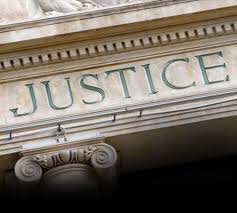According to riveting court testimony, Johnson & Johnson (J&J), knew as early as 2001 that the medication caused boys to grow breasts.

This testimony was provided by David Kessler, the former head of the U.S. Food and Drug Administration, in the first case over the antipsychotic medication to be decided by a jury in state court in Philadelphia.
J&J, no stranger to governmental fines, has paid more than $2 billion to resolve a criminal probe over its drug Risperdal.
“Red Flag” Study
According to Kessler, J&J’s Janssen unit funded a medical study in 2001, that demonstrated 3.8 percent of boys given Risperdal during the clinical trial developed breasts that were either “probably or very likely” caused by the drug.
Kessler told jurors in the trial that the study “certainly was a red flag to me.” The lawsuit brought by Austin Pledger, a 20-year-old Alabama man, claims that the drug caused his 100-pound weight gain and the development of female breasts, which will require surgical removal because of their size.
According to Pledger, Janssen executives hid the risk that Risperdal could create abnormal breast development in boys.
Over 1,250 Risperdal Male Breast Lawsuits
J&J, is exposed more than 1,250 lawsuits over the Risperdal breast growth side effect in state court in Philadelphia, centralized in the Philadelphia Court of Common Pleas as a mass tort.
In 2012, J&J settled the first case to go to trial over the allegations that the drug caused gynecomastia, or abnormal breast development, in boys.
J&J Paid $2.2 Billion in Criminal Fines
In 2013, J&J agreed to pay $2.2 billion to settle criminal and civil investigations that the company illegally marketed the drug to children and the elderly.
That settlement, which also includes marketing claims about two other J&J drugs, was one of the largest U.S. health-fraud penalties in history.
Risperdal Gynecomastia Side Effects
Gynecomastia is defined as the growth of breast tissue among males. In the Risperdal cases, the plaintiffs blame the breast development caused by Risperdal for the surgical treatment to remove the breasts, which causes scarring, physical injury, and severe psychological damage from Risperdal breast growth.
Risperdal has been also linked to excessive weight gain and diabetes. The drug, once J&J’s biggest seller, generated worldwide sales of $24.2 billion from 2003 to 2010, reaching $4.5 billion in 2007.
J&J Quietly Settling Risperdal Gynecomastia Claims
Johnson & Johnson has been quietly been settling the breast growth litigation over Risperdal for the past several years, but the number of claims has continued to increase as more families and young adults learn that there may be a link between gynecomastia and Risperdal use as a child.
Risperdal Safety Warning
Kessler, testifying as an expert, described for jurors his September 2012 review of the drugmaker’s handling of the medication. Kessler stated that while J&J knew as early as 2001 that the drug could cause breast development, it didn’t include a warning on the safety label until 2006, the year it received approval to sell the medication to children.
According to Kessler, in the years leading to that approval, the company pushed doctors to prescribe the medication through “off-label” non FDA approved marketing.
The case is PP v. Ortho-McNeil Janssen Pharmaceuticals, 120401997, Court of Common Pleas Philadelphia County (Philadelphia)






